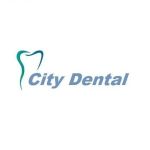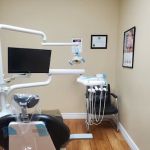Minimizing the Risk of Tooth Decay as We Age
Understanding the Challenge
As we get older, our bodies go through many changes, and our oral health is no exception. I’ve noticed a significant shift in my dental health over the years, from my gums receding to an increase in dryness of the mouth. These are all signs of aging, but the good news is that there are ways we can protect our teeth and reduce the risk of decay. When I first started noticing these changes, I realized how important it was to stay on top of my oral hygiene routine. Medications, dry mouth, and even natural wear and tear on our teeth can make us more vulnerable to cavities, but we don’t have to let this discourage us. Being proactive can significantly reduce the chances of tooth decay.
Adopting Good Oral Hygiene Practices
Good oral hygiene is essential at every age, but it becomes even more critical as we get older. I spoke with a longtime friend recently who’s in her late 70s, and she shared how her dentist emphasized the importance of brushing twice a day with fluoride toothpaste, flossing regularly, and using an antibacterial mouthwash. These practices help remove plaque, reduce bacteria, and protect the teeth from decay. I try my best to follow these steps daily, and even though it may seem like a lot, I feel the difference in the health of my mouth. After all, it’s much easier to prevent tooth decay than to treat it later on.
Scheduling Regular Dental Check-ups
Visiting the dentist regularly is crucial for maintaining oral health. I remember the first time I moved to a new city after retiring, and finding a dentist I trusted was a top priority. It took some time, but after some recommendations, I found a dentist who made me feel at ease. Now, I go for cleanings and check-ups every six months, and I feel confident that any issues are caught early. Regular dental visits ensure that your dentist can detect any early signs of tooth decay, gum disease, or other oral health problems. Preventive care is so much better than waiting until it’s too late.
Managing Diet and Nutrition
As much as I love sweets, I’ve learned the importance of managing my diet to help preserve my teeth. My granddaughter once commented on how much I loved sugary snacks, and that was a wake-up call for me. I started making better choices in my diet, including eating more fruits and vegetables and cutting back on sugary snacks and beverages. Foods rich in calcium, like dairy, and those that promote saliva production, like water and crunchy vegetables, help protect your teeth and keep your mouth healthy. A healthy diet works hand-in-hand with good oral hygiene to keep tooth decay at bay.
Staying Hydrated
Dry mouth is a common problem as we age, especially if we’re on medications that cause this issue. I found that drinking plenty of water throughout the day helps. Not only does it keep me hydrated, but it also helps wash away food particles and bacteria in the mouth. Staying hydrated is one of the easiest ways to prevent dry mouth and ensure that the saliva in our mouths continues to perform its important job of protecting our teeth. If dry mouth persists, it’s a good idea to talk to a dentist about other remedies or treatments.
Protecting Teeth from Wear and Tear
As we age, our teeth naturally undergo wear and tear. This can lead to cracks, chips, and worn-down enamel, all of which make our teeth more susceptible to decay. I’ve found that using a soft-bristled toothbrush and avoiding overly abrasive toothpaste helps prevent further damage. Also, if you grind your teeth at night, wearing a nightguard can help protect your teeth from the wear and tear of clenching. These simple steps go a long way in keeping your teeth strong and healthy.
Conclusion: Small Changes, Big Impact
By taking small steps like maintaining a good oral hygiene routine, scheduling regular dental visits, managing our diet, staying hydrated, and protecting our teeth from wear and tear, we can significantly reduce the risk of tooth decay as we age. It's never too late to take action, and making these changes in my daily life has made a big difference in my dental health. I encourage you to stay proactive, and remember, the key to a healthy mouth is consistency and care.







 Sweet City Smiles5.0 (513 review)
Sweet City Smiles5.0 (513 review) Hillside Family Dentistry4.0 (108 review)
Hillside Family Dentistry4.0 (108 review) Jae Chae DMD4.0 (26 review)
Jae Chae DMD4.0 (26 review) Eastern Dental4.0 (551 review)
Eastern Dental4.0 (551 review) Densley Dental4.0 (260 review)
Densley Dental4.0 (260 review) Arlington Dental Group and Orthodontics4.0 (210 review)
Arlington Dental Group and Orthodontics4.0 (210 review) The Importance of Oral Health Education During Pregnancy for a Healthy Pregnancy
The Importance of Oral Health Education During Pregnancy for a Healthy Pregnancy Best Tips for Brushing Your Teeth Properly for Healthy Gums: Essential Techniques for Oral Health
Best Tips for Brushing Your Teeth Properly for Healthy Gums: Essential Techniques for Oral Health Why Skipping Dental Checkups Can Lead to Bigger Oral Health Problems
Why Skipping Dental Checkups Can Lead to Bigger Oral Health Problems Advantages of Porcelain Dental Restorations
Advantages of Porcelain Dental Restorations How Can Diabetes Cause Tooth and Gum Problems? Preventing and Managing Oral Health Issues
How Can Diabetes Cause Tooth and Gum Problems? Preventing and Managing Oral Health Issues Healthy Habits for Promoting Good Oral Health and Hygiene: Tips for a Healthy Smile
Healthy Habits for Promoting Good Oral Health and Hygiene: Tips for a Healthy Smile